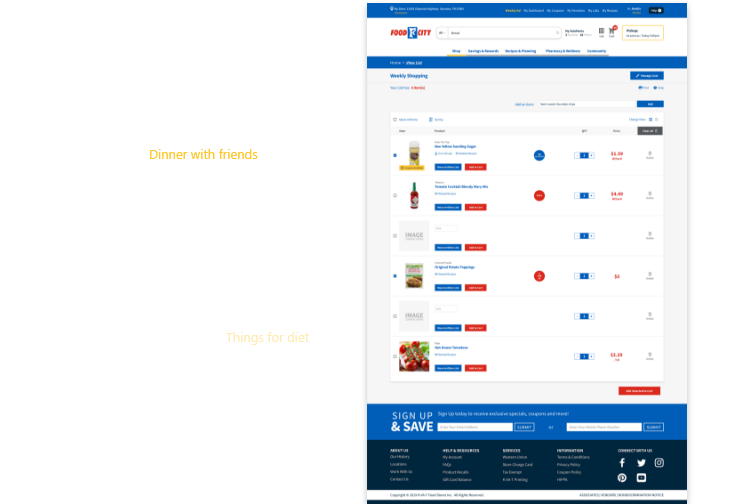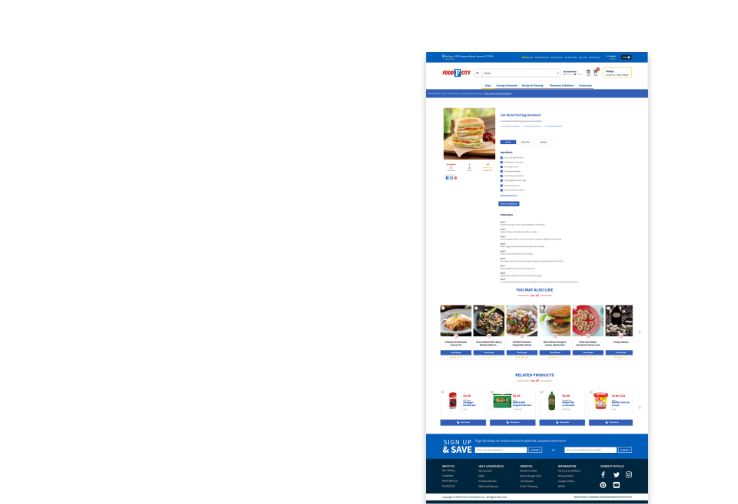
Wellness CLub — Inflammation and Food
Abingdon, VA. -
Wednesday, Jan 1, 2020.
Written by: Elizabeth Hall, MS, RDN, LDN, Food City Registered Dietitian
What exactly is inflammation? While the term typically has a negative connotation, inflammation in a healthy body is a natural part of normal homeostasis or your body’s mechanism to keep everything working properly.
There are two different types of inflammation: acute and chronic. Acute inflammation is intermittent and is your body’s response to a foreign substance such as an invading bacteria or virus. Typical symptoms of acute inflammation include pain, swelling, heat, and redness. This type of inflammation is protective to help your body fight infection and heal. Chronic inflammation, on the other hand, is when the body’s inflammatory response does not shut off even though there is no longer a foreign invader to deal with. This type of inflammation, often described as “low-grade” inflammation, is an underlying mechanism for the development of most diseases and can last for days, months, or even years. Conditions associated with chronic inflammation are autoimmune diseases such as inflammatory bowel disease or even heart disease, diabetes, and Alzheimer’s disease.
For one of the most powerful tools to combat inflammation, look no further than your local grocery store. Many experimental studies have shown that components of foods or beverages may have anti-inflammatory effects. Choosing anti-inflammatory, nutrient-rich foods may reduce your risk of illness, while consistently choosing pro-inflammatory foods could accelerate the inflammatory disease process.
Not surprisingly, the same foods that contribute to inflammation are generally considered harmful for health, such as sugar-sweetened beverages, refined grains, and saturated fats from processed foods. This does not mean that these foods can never be eaten, just that they should be consumed in moderation. In addition, these foods could lead to weight gain which is also a risk factor for increased inflammation.
An overall balanced diet full of high-fiber plant foods such as whole grains, fruits, and vegetables as well as healthy fats from fish, seafood, nuts, and seeds can help to enhance the body’s immune system and provide antioxidants that reduce inflammation. Evidence is unclear, however, how much of each specific food is beneficial, so beware of any diet or food that claims to be an anti-inflammatory “miracle”.












